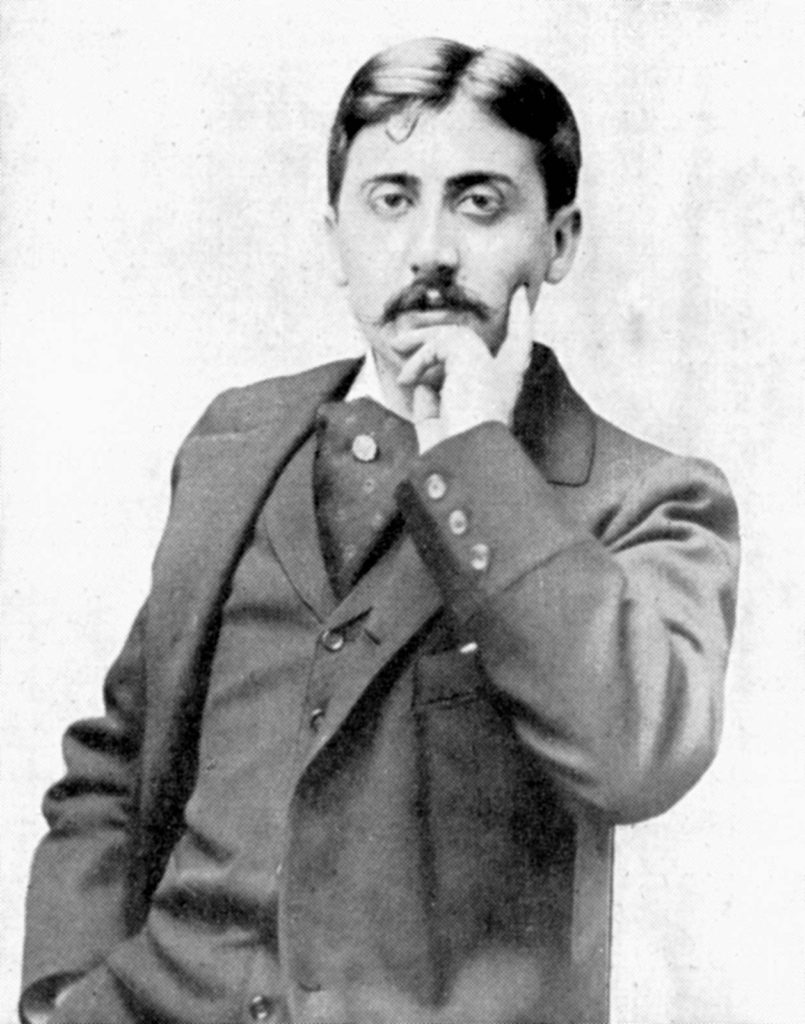Friday
Trump and Trumpism have proved so abhorrent that new liberal-conservative alliances have formed amongst those concerned about the future of our democratic republic, and I suddenly find myself applauding people I’ve disagreed with for years, such as Jennifer Rubin, Max Boot, William Krystol, Steve Schmidt, Kurt Bardella, Joe Scarsborough, Michael Steele, Rick Wilson, Stuart Stevens, and others. Above all, I admire David Frum, a conservative with integrity with whom one can have respectful conversations. I only recently learned that he’s a huge fan of Marcel Proust, to whom he owes some of his most profound insights.
In 2010 Frum quoted the following Proust passage in response to comparable political shifts going on at the time:
In the days of my early childhood … no ‘good’ house would ever have opened its doors to a Republican. … But, like a kaleidoscope which is every now and then given a turn, society arranges successively in different orders elements which one would have supposed to be immovable, and composes a fresh pattern. Before I had made my first Communion, ladies on the ‘right side’ in politics had had the stupefaction of meeting, while paying calls, a smart [ie fashionable] Jewess. These new arrangements of the kaleidoscope are produced by what a philosopher would call a ‘change of criterion.’ The Dreyfus case brought about another …. Everything Jewish, even the smart lady herself, fell out of the pattern, and various obscure nationalities appeared in its place. The most brilliant drawing-room in Paris was that of a Prince who was an Austrian and ultra-Catholic. If instead of the Dreyfus case there had come a war with Germany, the base of the kaleidoscope would have been turned in the other direction, and its pattern reversed. The Jews having shewn, to the general astonishment, that they were patriots also, would have kept their position, and no one would have cared to go any more, or even to admit that he had ever gone to the Austrian Prince’s.
Frum then identifies a few of the shifts he’s witnessed:
We see these kaleidoscope twists continuing into our own day. Feminists turn into anti-pornography activists and make common cause with the religious conservatives they once despised. Pro-lifers engage with end-of-life issues and find alliances with Naderite critics of for-profit medicine. One-time anticommunists are jolted by 9/11 into transferring their admiration from anti-Soviet mujahedeen to anti-jihadist secular Muslims.
And then the kaleidoscope twists again, and again old alliances and relationships mutate into strange and unexpected forms. A town like Greenwich, CT can drift from ultra-Republican in 1985 to super-Democratic in 2005. John L. Lewis’ Appalachia is the only part of the country to become more Republican between 2004 and 2008.
Frum concludes his essay with the following gem:
The great lesson Marcel Proust tries to impart is the mutability of human life. That lesson applies to politics too. Coalitions combine, separate, recombine. Nothing remains unchanged, no matter how solid it may seem. Or, as Proust concludes at the end of Swann’s Way: “Houses, roads, avenues are as fugitive, alas, as the years.”
As I noted in Tuesday’s post, profound insights occur when political scientists draw on literature. Frum is another case in point.
